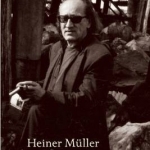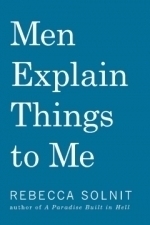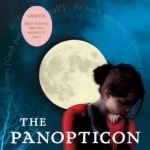
The Christian Soldier: The Life of Lt. Col. Bernard William Vann, V.C., M.C. and Bar, Croix De Guerre Avec Palmes
Book
Lieutenant Colonel the Rev Bernard William Vann, VC, MC & Bar, Croix de Guerre avec palme, was one...

Heiner Muller After Shakespeare: Macbeth and Anatomy of Titus -- Fall of Rome
William Shakespeare, Carl Weber and Heiner Muller
Book
Heiner Muller After Shakespeare makes available for the first time Macbeth and Anatomy Titus Fall of...

Home Design DIY Interior Floor Layout Space Planning & House Decorating Tool HD by Mark On Call
Productivity and Lifestyle
App
"OUR PICK OF THE 50 BEST IPAD APPS...MARK ON CALL HD" - The Guardian ***DEMO VIDEO @...

CNET: Best Tech News & Reviews
News and Shopping
App
CNET, the #1 source for tech news and reviews, puts the biggest stories of the day and expert advice...
Molly J (Cover To Cover Cafe) (106 KP) rated A Heart Revealed (Winds of Change, #2) in Books
Feb 27, 2019
Okay. Let me take just one moment to reflect on this book. *Reflecting* Okay. That’s better. WOW. I don’t even know where to begin. There is so much to say about this novel. Let me start off by saying if you’ve never read a Julie Lessman novel, stop what you are doing right now, and grab a copy. You won’t be sorry. The first novel I read by her was last September, entitled A Hope Undaunted, book 1 in this Winds Of Change series. I couldn’t believe how much I fell in love with her work! I was then lucky enough to win all three novels in her first series, The Daughters of Boston. Though they are still sitting on my shelf to be read, they are definitely calling my name and I can’t wait to go back and read them.
Now, on to the rest. In the first book in this series, I fell in love with Luke McGee. In this novel, I think I love Sean O’Connor even more. I really enjoy Snickers bars, so see, Julie? You could send SEAN my way, and I’d be forever blissfully happy. I LOVED his character. He was great in his role in A Hope Undaunted , but reading his story with the focus on him, was absolutely amazing. His past wasn’t perfect, and there were times when he went wild with anger, but he overcame that. There was one thing from his past that he holds inside though. No one, not even his nosy sisters, know. That is until, he finds himself drawn to his best friend Emma in a way that he couldn’t imagine. He opens up to her….with everything.
Emma Malloy. Bless her soul. She was a wonderful character, flawed and sweet, and wanting everyone close to her to be happy. Including Sean. When she finds her self falling in love with him, when she’s still married to the man who beat her 11 years ago, she’s determined to push him off on Rose Kelly…the woman who loves him. Trouble is, something happened to Sean and he won’t try with Rose.
Oh, I so want to go on and on….but I’m SO close to giving away the plot! I DO NOT want to do that! I want you to devour the book like I did and take the time to reflect on the wonderfulness of this novel. It’s stunning. It’s breath taking. It’s a roller coaster of emotions, from happiness, to sadness, to anger, to pride, to passion. It has a WHOPPER of a twist and an ending that will leave you smiling and tears running down your face. Not to mention I LOVED Casey Herringshaw and Michelle Tuller’s characters 😉 *grins*!
I highly suggest that you grab a copy of this novel NOW. It’s 5 Books worthy, two thumbs up, hats off, a home run, a winner, a best seller……what ever you want to call it’s that. Julie Lessman really has a way to make ME feel a part of the heart of the story. She speaks to me through the words of her characters, and really brings me closer to God each time. She is by far my absolute FAVORITE Christian novelist and I will NEVER part with her books. They are forever on myself for me to read and reread, and reflect on each time. I am looking forward to book three in this series, Steven O’Connor’s story. Sweet angels in Heaven, though, Julie, do you have to make us wait a whole YEAR!?!? *Sigh* Oh well. All the more for me to savor that one upon it’s release.

Home Design DIY Interior Room Layout Space Planning & Decorating Tool - Mark On Call for iPhone
Productivity and Lifestyle
App
"It's the next best thing to hiring a designer or having an assistant.” - Apartment Therapy "Save...

Course For WordPress 101
Productivity and Education
App
Wordpress is “the” software for creating blog sites. Join expert trainer, Geoff Blake as he...
Jamie (131 KP) rated Men Explain Things to Me: And Other Essays in Books
Jul 26, 2017
The titular essay, Men Explain Things to Me, discusses the author’s experiences with men explaining things with the assumption that she couldn’t possibly know due to her gender. While I was nodding my head that yes, I have experienced this as well, there was not much else. There was little to no research into the history of why this might be or any additional insight into the topic which was really a let down, I didn’t feel like I got much out of it. I should have known that the rest of the essays in this collection would be the same but I was optimistic.
One of the better essays was In Praise of the Threat: What Marriage Equality Really Means which discussed how the fight for marriage equality, or same-sex marriage, has been redefining the traditional gendered views of marriage and I thought that this was really great. However in a later essay Solnit goes on to claim that gay marriage would never have been possible if it weren’t for feminists redefining marriage as a union between equals, which is a statement I found both bold and mildly insulting.
I also need to address a specific statement that became the basis the essay, The Longest War, which was the following:
“Violence doesn’t have a race, a class, a religion,
or a nationality, but it does have a gender.”
It is very apparent that Solnit doesn’t know a thing about intersectionality because any minority can tell you that the statement above is laughably false. Is it true, statistically, that more reported violent crimes are perpetrated by men? Yes. Do people in many societies have an issue with toxic masculinity? Yes. Does this mean, then, that violence has a gender, that it is purely a male problem? No. To say that it doesn’t have a specific race, class, religion, or nationality despite evidence to the contrary throughout history is naïve.
Solnit continues on to rant about how men are the almost exclusive source of violence and assault and how everyone should acknowledge this so we can go about finding solutions. She doesn’t go into much more depth than that or offer up much in the way of solutions herself. A large portion of the essay is just her fluffing up the piece with a literal list of vague examples which might not mean much to folks less knowledgeable about violent crimes. There are also quite a few statistics thrown in with absolutely no sources to back up the claims.
Not that I doubt the information provided, but in times where people cherry pick the news to fit their own narrative books like this become questionable. After flipping through the back of the book I eventually found a note in the acknowledgements section that Solnit chose to edit out her sources for the book version, but that they could be found on the online versions of her essays. It’s careless and lazy for an author that wants to be taken seriously.
Solnit also postulates at several points that because she has published several books that she is an authority and I found that sort of attitude to be self defeating. She talks about another author that she argued with about Virginia Woolfe and claims that she had “won” which just makes the author sound childish, and I wondered what the point of the essay was to begin with. It felt out of place for the rest of the collection and any connections she attempted to make were shaky at best.
I think that Solnit had some good ideas but the execution was extremely poor. Because she spends so much time listing examples and being over dramatic in her descriptions the actual point of discussion in her essays becomes muddled and unclear. There are far better essays out there that address the exact same topics. Men Explain Things to Me just wasn’t worth the time.
Eilidh G Clark (177 KP) rated The Panopticon in Books
May 13, 2017
At the beginning of the novel, the fifteen-year old Anais is governed by the state. In contemporary British society, a child under the age of sixteen, regardless of her social situation is, by law, governed by an adult/s. Anais has lived her life in the care system with the exception of a short period in which she lived with an adopted mother. It is for this reason that she is able to see society from outside of the family unit. By creating the motherless child, Fagan presents Anais as the ‘other’ from both a societal perspective- ‘communities dinnae like no-ones,’ and from the viewpoint of the protagonist, ‘What they really want is me dead,’ (TP, p.23). Without a family, and through a lack of legitimate information regarding her birth mother, Anais believes that she was created in a lab:
I’M AN experiment. I always have been, It’s a given, a liberty, a fact. They watch me. Not just in school or social-work reviews, courts or police cells – they watch everywhere. […] They’re there when I stare too long or too clearly, without flinching. […] They watch me, I know it, and I can’t find anywhere any more – where they can’t see, (TP, Prologue).
Note that in the above quotation, the protagonist describes her assumed identity as a ‘liberty’. Liberty, in this case, means freedom from the oppressive nature of the family. Although Anais desires the nurturing aspect of the family, ‘I just want my mum,’ (Tp, p.269), her lack of family exposes her to the nature of contemporary society as a constant monitoring of civilians. In the above quotation, the repetition of ‘they’ suggests that she feels outside of the norm. The most important aspect of the above quote however, is that it is told from the protagonist’s thoughts. While Fagan gives Anais a certain amount of autonomy through both the first-person narrator, and the vernacular, the reliability of the narrator is increased by presenting the characters inner thoughts. While this limited autonomy is important, full autonomy is restricted by age. Bever suggests that ‘the capacity for individuals to become autonomous seems radically dependent on the contingent historical circumstances and societies into which they are born. Anais’ awareness of herself as the ‘other’ allows her an insight into the oppressive role of society, which is normally hindered in childhood due to the role of the family and it’s teaching of norms and values.
The sense of otherness can also be looked at in regard to Scotland and its role within the UK. The UK is a family of four countries under one state. Regardless of Scotland’s devolution, it has still to comply with a large amount of UK policies. Scotland has different values and goals to that of the UK making it ‘other’. With a different cultural identity to its neighbours, many Scottish citizens are seeking independence to protect its dwindling identity, whilst for others, independence is political.
Anais’ awareness of social control causes her a feeling of shrinking. This, according to her social workers is an identity problem:
Fifty odd moves, three different names, born in a nuthouse to a nobody that was never seen again. Identity problem? I dinnae have an identity problem – I dinnae have an identity, (TP, p.99).
Anais’ reaction in the above statement describes her lack of knowledge of her ancestry. I would argue that her identity is forced upon her from the fifty-one times that she has moved home, the care system, the solitary time in which she was adopted, the relationships she has had - both female and male, her friends but more importantly, from the unreliable account of her birth from the monk in the metal institution. The lack of family does not alter the fact that she is alive, and that all the fragments of her past make up an identity. For Anais, ‘Families are overrated […] ‘I umnay fooled. Not by families,’(TP, p.63-64). Like Anais, Scotland’s identity is ambiguous. Independence will allow Scotland political autonomy, however, within a global economy, Scotland still has limited autonomy. As culturally ‘other’ however, Scotland has already achieved autonomy with or without a state through its language, its people and its traditions.
Fagan demonstrates the difficulty of total autonomy though Anais and the birthday game, a game in which she creates her own identity. When she turns sixteen years of age, Anais is free from societal care and flees from her imprisonment, ‘I am Frances Jones from Paris. I am not a face on a missing-person poster, I am not a number or a statistic in a file. I have no-one watching me, […] I−begin today,’ (TP, p.323-324). ‘I’ suggests singularity and is still opposite to ‘them’ or ‘we’. Autonomy is therefore, ambiguous; Anais is still living within the same system under a false identity, she is therefore, segregated from everyone that she knows. Moreover, by changing Anais’ name to a name that ‘means freedom.’ (TP, p.323), Fagan is pointing out the difference between freedom and autonomy. Freedom is an emotive word, and there are two concepts of freedom – freedom from, which in Anais’ situation means freedom from the system of observation. Freedom to, however, is more problematic as Anais can never be free from the neoliberal system of rules and law – as Scotland would see in the case of independence. I would therefore conclude that Anais/Scotland has always has limited autonomy through cultural identity and history. I believe autonomy can only reside within the system through cultural and individual imagination and not out with it.
What does this mean for Scotland? If Scotland is part of the global community, can it become an autonomous nation? Is there a solution or should Anais/Scotland accept that cultural autonomy is imagined or self-contained. Can a collective identity and imagination change the political system? Finally, can culture survive without independence?
Bibliography
Crupp, Tyler, ‘Autonomy and Contemporary Political Theory’, in Encyclopaedia of Political Theory, ed. Mark Bevor (London: Sage Publications, 2010)
Fagan, Jenni, The Panopticon (London: Windmill Books, 2013), p.6.
Windmill Books. (2013). Granta Best Young British Novelist Jenni Fagan, . accessed 22 November 2015. Published on Apr 16, 2013
Acanthea Grimscythe (300 KP) rated The Graveyard Apartment in Books
May 16, 2018
Horror is my ultimate weakness. Anything that has the potential to be spooky or scary, I am likely to gobble up without a second thought: or, at the very least, take the time to sit down and read or watch. After reading the synopsis for Mariko Koike's The Graveyard Apartment, I eagerly applied for the opportunity to review a copy of the book prior to release. Now that I've finished devouring it, I find myself with many unanswered questions.
The Graveyard Apartment takes place in the late 80s, and was, in fact, originally published in 1986. It tells the tale of a small family, the Kanos, that has made their first real estate purchase: a comfortable, two bedroom apartment located on the eight floor of a new apartment building that, as the book's title indicates, is located near a graveyard... and a temple... and a crematorium. Apparently that's not enough to warn off potential buyers though, because the Kanos are not the only ones duped into purchasing one of the fourteen apartments. Once they've settled in, strange occurrences begin and they quickly find themselves in a living nightmare.
Beginning with the characters, I find nearly all of them to be unlikable in one way or another, with the exception of the daughter, Tamao. Her parents, Misao and Teppei Kano, strike me as extremely self-centered and one-dimensional, as do her aunt and uncle, Naomi and Tatsuji. Their downstairs neighbors, the Inoues, are precisely what you'd expect of a more outgoing family, and the managers of the apartment are rather dry in comparison. I felt little to no sympathy at any point for anyone other than the daughter, the dog, and the finch and for this, especially in something that has been labeled a psychological thriller, is extremely disappointing. Without being able to form a connection to the characters, I tend to find it difficult to actually care about what happens to them, and so upon the conclusion of the book, I simply shrugged and closed my Kindle app.
The story itself has a lot of potential, and yes I am aware that is a word I throw around a lot in my reviews. When I look at a plot, I tend to form my own thoughts regarding what could happen, and a lot of times that does lead to me being let down. For instance, in The Graveyard Apartment we learn that Misao is Teppei's second wife, the first having been lost to tragedy. Though Teppei's first wife, Reiko, is mentioned very often in the book, and made to seem as if there is a key role to be played by her, there actually isn't: it's all useless information that has been thrown out to the reader, but has no real connotation on the story. Likewise, Misao discovers that there had originally been plans to build an underground mall in the area back in the 60s. Given the strange things that happen throughout the book, one might expect to see and learn a lot more about this supposed mall and the aftermath of its construction having been canceled. We don't. Again, it is an element to the story that is not fully fleshed out, even though it is clearly a major factor in the history of the apartment building that the Kanos have moved into.
As if those two players weren't enough of a disappointment, the book does not come to a conclusion, and for me this is a disappointment. I don't care much for happy endings; in fact, I rather prefer unhappy endings. The Graveyard Apartment robs us of any sense of finality, though, and in truth fails to draw the story to a true close. As a reader, we can surmise the outcome based on the book's epilogue, but that's about as much we can do. We can figure out what happened to the Kanos and their fate, but we do not learn why. Instead, Koike continues to hint at a malevolent being haunting a recently built apartment complex whose origins are unknown, and whose origins no one really seems to be overly curious about. Sure, they're scared, but they don't really seem to care beyond that. There wasn't any shortage of clues either, as to why the place may have been haunted; only a lack of motivation in regards to finding out why that extends beyond Teppei's initial apprehension.
I really, truly can't wrap my head around how much was wasted in this book. It was like watching a B-rated horror flick where someone forgot to tie up the loose ends. Honestly, I would have liked to see more revealed regarding Reiko and the failed underground mall.


